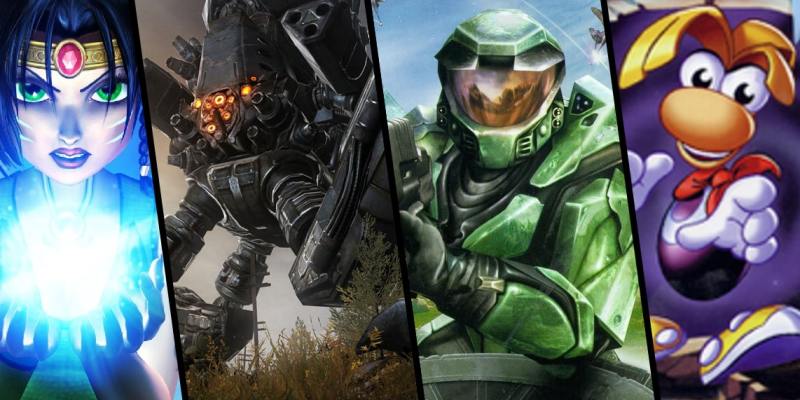Video game launch lineups are such a strange thing. We spend years waiting for the moment a new console arrives and eagerly anticipate what big new games we’re going to test-drive first. There’s something magical about unboxing a new piece of technology that you know is going to be home to so many unforgettable experiences over the next five to 10 years and playing your very first set of games on it. That said, in the grand scheme of things, launch lineup games tend to have a fairly short shelf life, as new games that better take advantage of the new hardware’s capabilities soon come along. Seeing as how we’re on the cusp of PlayStation 5 and Xbox Series X, I thought it would be fun to take a look back at the games that arrived alongside the previous generations of consoles, including the best, worst, and weirdest of the bunch.
For the sake of consistency, I’m going to be focusing on the games that arrived alongside the North American releases of the consoles. And given that Nintendo Switch is still going along strong, I’m not going to focus on the launch games throughout Nintendo history, despite the fact that they are some of my all-time favorites.
PlayStation 1 (September 1995)
This is the only PlayStation console that I didn’t buy at launch, and looking back at its lineup of games, I’m incredibly thankful for that. While PlayStation 1 would go on to offer some of the most memorable games ever made and kickstart some of the biggest franchises in our medium’s history, that magic certainly wasn’t present from the very beginning.
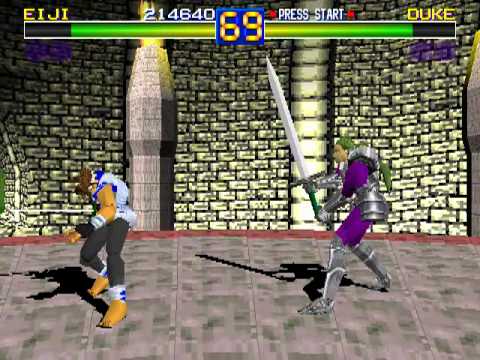
There were a few solid examples of the kinds of 3D experiences that the console had in store for us, with Battle Arena Toshinden and Ridge Racer, alongside some entertaining ports of arcade classics like The Raiden Project and NBA JAM Tournament Edition. But at the bottom of the launch barrel came another arcade port in the form of Street Fighter: The Movie, which somehow managed to be worse than the actual film itself.
Ironically, the highlight of the lineup was the original Rayman from Ubisoft, which shied away from Sony’s much-touted 3D graphics in favor of delivering a beautiful and extremely difficult 2D platformer. A thing to keep in mind is that Sony’s current stable of incredible first-party studios was practically nonexistent in 1995, so there wasn’t any single game for the console to highlight in the same way that Nintendo had Super Mario 64 the following year.
PlayStation 2 (October 2000)
If you just looked at the developers and publishers involved in the games at the PlayStation 2 launch, you’d think you were having a fever dream. A shooter from Epic (Unreal Tournament), a pair of games from Rockstar (Midnight Club and Smuggler’s Run), and three (!) different FromSoftware titles. But sadly, it was the year 2000; the offerings from these studios weren’t quite up to the quality or popularity of Fortnite, Red Dead Redemption 2, and Bloodborne.
Like its predecessor, PlayStation 2’s eventual greatness wasn’t apparent from its launch games. While certainly a stronger batch than the PS1, it had no single standout game. Instead, it had a wide array of technically impressive experiences that showcased the power of Sony’s new hardware. From the arcade enjoyment of Ready 2 Rumble Boxing: Round 2 and Tekken Tag Tournament, to the strange wonder of Fantavision, there was something for everyone at the PS2 launch.
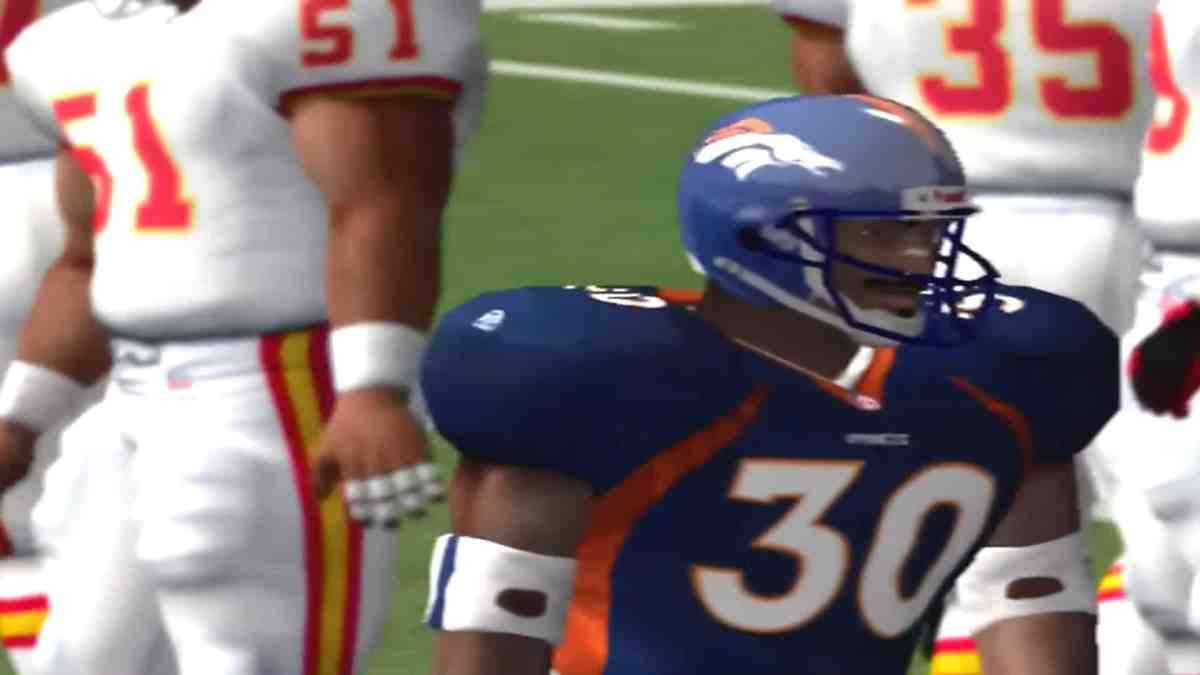
One of my personal highlights was Madden NFL 2001, which felt like such a massive leap forward and really laid the groundwork for the franchise that we still see today. Another was TimeSplitters, from developer Free Radical. Composed of a lot of ex-Rare folks who worked on GoldenEye 007 and Perfect Dark, it was the first in a trilogy of shooters that leaned heavily on style and humor. And finally there was SSX, EA’s extreme snowboarding game that was the only thing on the market that rivaled the thrill of Tony Hawk’s Pro Skater.
Sadly, those three big games out of FromSoftware ended up being major busts. Armored Core 2 transformed the fantasy of piloting a mech into a sluggish nightmare, Eternal Ring was an awkward successor to the first-person King’s Field series, and Evergrace was a clumsy traditional RPG that was overshadowed in every way by the pair of Square PS1 RPGs in Final Fantasy IX and Vagrant Story, which also hit in 2000.
But honestly, the biggest selling point at the launch of PlayStation 2 was that it had one of the cheapest DVD players available on the market. This was right at the post-Matrix precipice of DVD becoming the dominant form of media for the next decade, and being able to have a video game console that doubled as a media player is part of the reason why PlayStation 2 remains the best-selling console of all time.
Xbox (November 2001)
Xbox’s arrival in November 2001 is one of those rare console launches that is so uniformly defined by a single game. Halo: Combat Evolved marked one of those iconic moments in gaming history and became the line of demarcation for an epoch — you were either a console shooter that existed before Halo, or one that came after it. From its cinematic campaign, to its endlessly replayable multiplayer, to its defining use of a dual analog controller, Bungie’s shooter is probably the strongest non-Nintendo launch game in history.
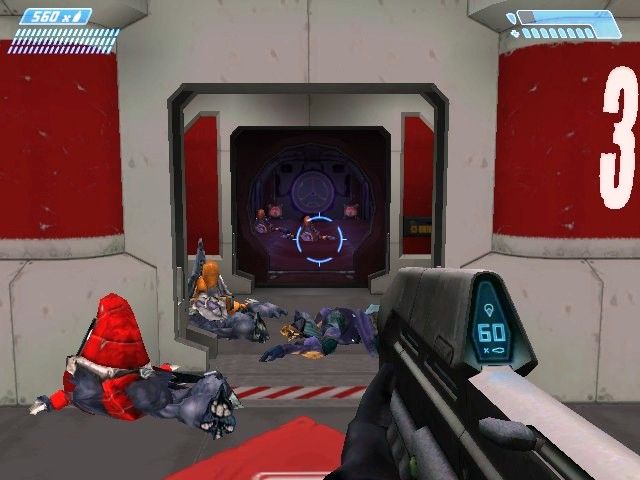
Alongside Halo, there was an impressive number of Xbox exclusives at the console’s launch, including the strange Oddworld: Munch’s Oddysee, the gorgeous Project Gotham Racing, the tense fighter Dead or Alive 3, and the multiplayer mayhem of Fuzion Frenzy, which has gone on to develop a bit of cult status.
There were certainly some duds among the bunch, including a decent port in Tony Hawk’s Pro Skater 2x that was overshadowed by the fact that Tony Hawk’s Pro Skater 3 had already been released on PS2 by the time the Xbox hit. But the worst offender was the original Shrek game, which came on the heels of the movie’s massive success. This drab cash-grab was a technical mess across the board. The most interesting thing about it is that it was developed by Digital Illusions CE, who would go on to be renamed DICE and become known for the Battlefield, Mirror’s Edge, and Star Wars Battlefront franchises.
Xbox 360 (November 2005)
Xbox 360 had the luxury of launching a year prior to PlayStation 3 and Wii, so the spotlight was on Microsoft to showcase just what the next generation was capable of. And despite the lack of a singular all-time classic like Halo on the original Xbox, Xbox 360’s initial offering had a wealth of solid games that conveyed an immediate visual leap over what had been previously available on consoles.
There were a handful of graphical standouts, perhaps most popular of which was Call of Duty 2. For CoD2, the team at Infinity Ward delivered the most visually impressive World War II shooter anyone had ever seen, with a standout being the volumetric smoke that filled the battlefields. Condemned: Criminal Origins was a terrifying first-person survival horror game where the graphical fidelity heavily aided the terrifying atmosphere. Ubisoft’s adaptation of Peter Jackson’s King Kong, led by Michel Ancel, released on both console generations, with the leap in quality of the 360 version being readily apparent. And of course, no console launch is complete without a racing game to show off your hardware, and Project Gotham Racing 3 did just that.
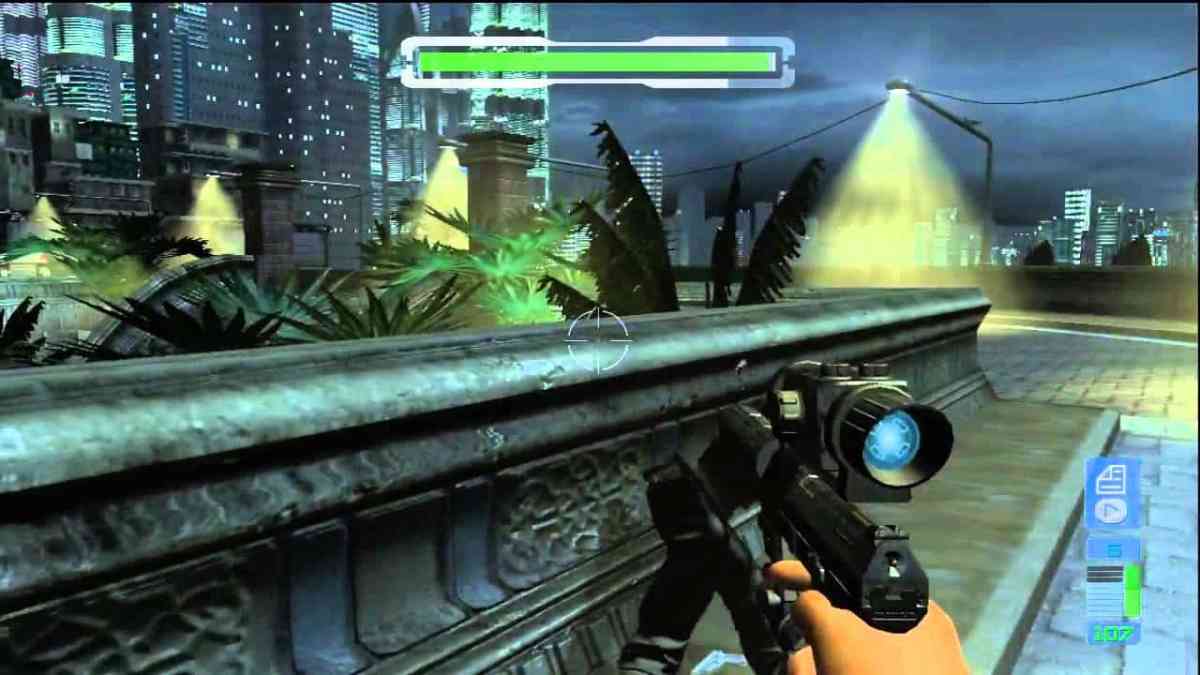
While there were no truly awful games at launch on the 360, the two main disappointments came from Rare. The leadup to Kameo: Elements of Power and Perfect Dark Zero had fans hoping for a return to the glory days of Nintendo 64-era Rare. Sadly, while Kameo was visually impressive, it lacked the magic of Rare’s previous platformers. And PDZ was anything but a worthy successor to the original, releasing to so much disappointment that the franchise has been shelved ever since, with hope that Microsoft’s current roster of studios, including The Initiative, might bring it back to life. But hey, at least Hexic HD came pre-installed on all Xbox 360 hard drives? That’s something?
PlayStation 3 (November 2006)
The odds were against PlayStation 3 before it even hit store shelves. A rough E3 2006 showing, which included infamous moments like “giant enemy crab” and “$599 US dollars,” seemed to wipe away so much of the good will earned by the record-setting PS2. The console also launched with the Sixaxis controller, which had to ditch rumble feedback early on seemingly due to an ongoing lawsuit. And coming a year later than the more-affordable Xbox 360 meant that the PS3’s launch lineup was going against higher-quality year-two games like Gears of War, Lost Planet, and Dead Rising.
In contrast to Xbox 360’s already expansive library, PlayStation 3 only had 13 titles available at the start, with a majority of them either being sports games or games that also appeared on Xbox 360. While there were definitely some good games in their own right, like Marvel: Ultimate Alliance, Call of Duty 3, and Tony Hawk’s Project 8, they were all cross-gen and lacked true next-gen pizazz. For that, early adopters had to look to Insomniac’s Resistance: Fall of Man, which delivered an excellent sci-fi campaign alongside the best (and only) multiplayer shooting on the PS3 at launch.
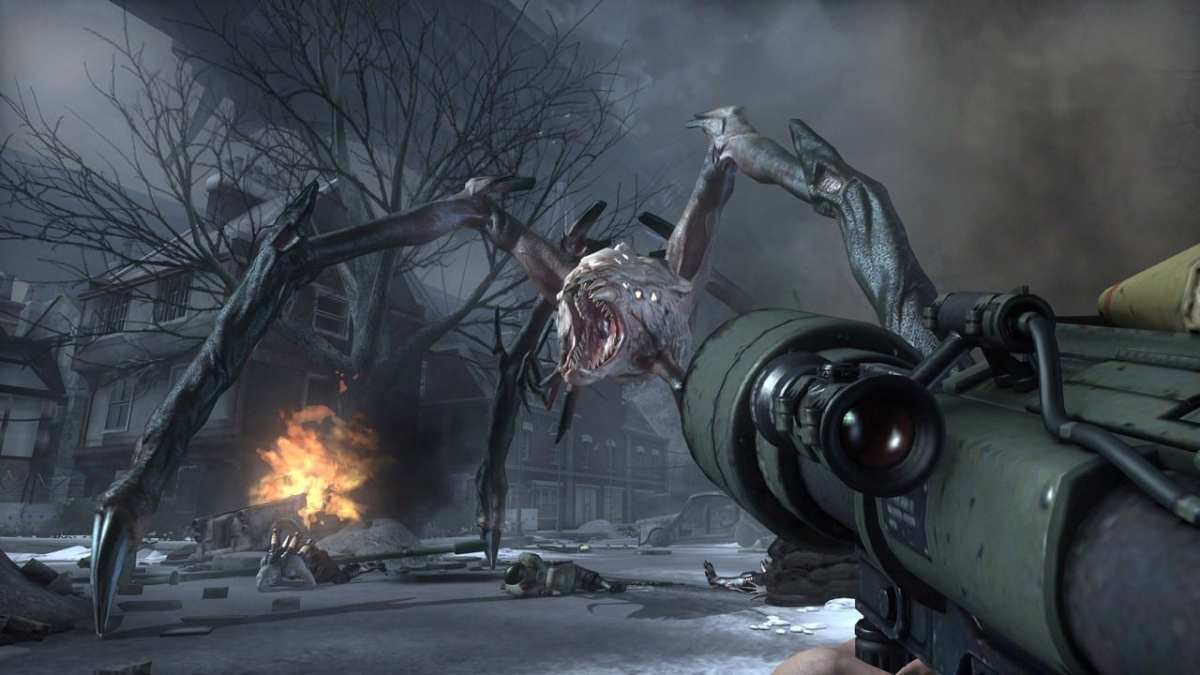
But like the PS2 before it, PlayStation 3 benefited from what it could play outside of just PS3 games. The initial $600 units had full backwards compatibility with PS1 and PS2 games, which is something I genuinely miss from Sony consoles. It also continued Sony’s embrace of new physical media by focusing on Blu-ray discs, which would quickly go on to defeat HD DVD in the format wars and become the go-to format for years to come.
PlayStation 4 (November 2013)
Launching just a week prior to Xbox One, Sony was riding high into the PlayStation 4 generation. The PS3 finished strong earlier that summer with The Last of Us, which was one of the defining games of the generation. And while none of Sony’s games at the PS4 arrival rose to those levels, there was still a lot of fun to be had.
Sony brought a pair of first-party games to the launch with Killzone Shadow Fall and Knack. Like Ryse: Son of Rome, Killzone was high on visuals, average on gameplay. And although kids and parents probably found enjoyment in Knack, it now feels most famous as an internet punchline. But despite being smaller than those two, the most critically acclaimed Sony-published game of the launch came from Housemarque in the amazing sidescrolling shooter, Resogun.
PlayStation 4 shared a lot of its third-party lineup with Xbox One. But PlayStation 4 also had its share of third-party console exclusives, including the free-to-play DC Universe Online and Warframe. Ironically, one of the strongest PS4 games at launch was Contrast, an excellent indie puzzle platformer from Compulsion Games, which is now a part of Xbox Game Studios. Finally, a pair of PS4 ports in Flower and Sound Shapes brought two of the PS3’s most beloved smaller gems to the new hardware.
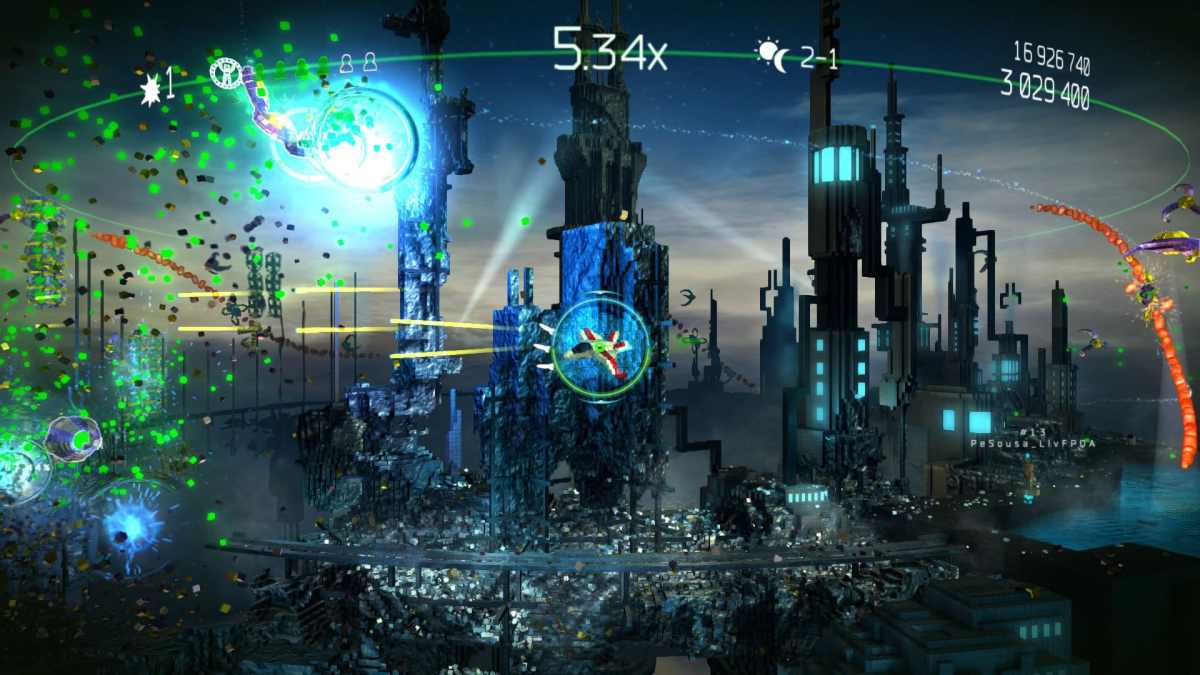
Xbox One (November 2013)
The notable criticism of this year’s Xbox Series X lineup is a lack of exclusives, especially compared to what we saw with Xbox One in 2013. Some were pretty bad, like Crimson Dragon, Lococycle, and the dreadful Kinect-centric Fighter Within. Some were perfectly adequate like Powerstar Golf or would eventually become great games like Killer Instinct. And some truly stood out, included the technical showcase of Ryse: Son of Rome, the wonderful racing of Forza Motorsports 5, and the big, dumb, gory fun of Dead Rising 3.
Xbox One and PlayStation 4 shared a strong lineup of third-party games to occupy our time in November 2013, including the usual slew of EA and 2K sports games, Battlefield 4, Call of Duty: Ghosts, Just Dance 2015, and LEGO Marvel Super Heroes. The standout game here, and the best game of either of the console launches, was Assassin’s Creed IV: Black Flag, which remains one of the best AC games in Ubisoft history.
But like the PS3 before it, Xbox One had to weather a pre-launch storm that stemmed from a muddied E3 filled with mixed messages and policy changes, as well as an early focus on Kinect. It’s also interesting to note that both of the new console launches in November 2013 felt overshadowed by the monumental release of Grand Theft Auto V just a few months beforehand.
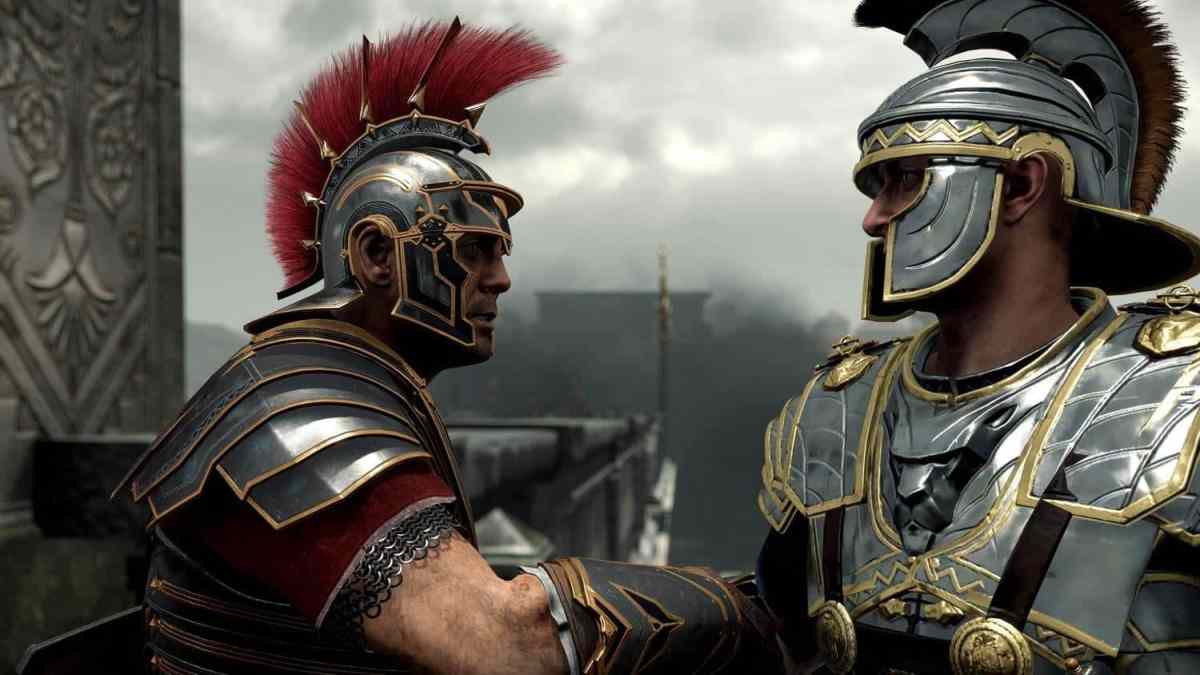
It’s too early to say where the Xbox Series X and PlayStation 5 launches will fall in comparison to those of their predecessors. Sony has some great-looking exclusives in Spider-Man: Miles Morales, Demon’s Souls, and Sackboy: A Big Adventure, as well as strong indie support in Bugsnax and The Pathless. We’ll know soon how games like Assassin’s Creed Valhalla and Call of Duty: Black Ops Cold War sit in their series’s pantheons. While Xbox is certainly lagging behind in the exclusives department, Gears Tactics and Tetris Effect: Connected both look great. It will also be the only place to play the next-gen version of Yakuza: Like a Dragon in 2020. Plus, Xbox’s focus on backwards compatibility and Game Pass make it feel like a different beast entirely than PlayStation 5.
The one constant among all of these launch lineups is that they are in no way indicative of the ceiling of quality of their respective consoles. And if the XSX and PS5 are anything like their predecessors, we’ll be in for a wonderful half-decade of amazing experiences.
